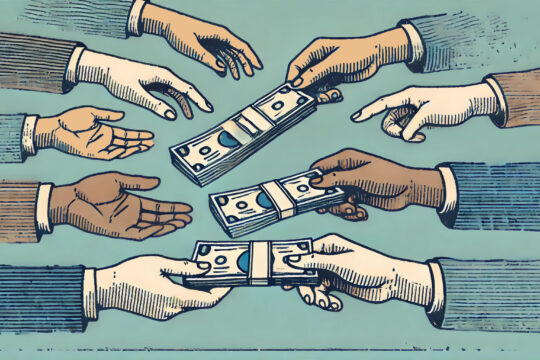


President Biden has proposed increasing the tax on buybacks from 1% to 4%.
Over the past 20 years, buybacks have become the darling of companies seeking a tax-advantaged avenue to return capital to shareholders – and for good reason. Buybacks as a capital allocation tool are more flexible than dividends, allowing shareholders to reinvest what would have been tied-up ‘unproductive’ cash into fresh opportunities.
So, what’s the problem?
Buybacks are often linked to behaviors that are detrimental to long-term value creation. Executives can find it tempting to use buybacks to manipulate earnings per share as a means of hitting quarterly guidance targets and inflating executive remuneration, but this is of course unsustainable, and in the worst cases can even detract funding away from initiatives that would generate real growth. It isn’t that buybacks are inherently bad, so much as they can so easily be misused for the wrong reasons and at the wrong times.
While the original 1% tax barely served as a speedbump, this newly proposed 4% may be enough to make companies take pause and re-evaluate their approach to buybacks going forward.
When the playing field between buybacks and dividends is leveled, the benefit of the buyback is neutralized. We’ve seen this play out in other countries. India, for example, experienced a sharp uptick in buybacks through the mid-2010s, as companies considered them the more cost-efficient choice vs. dividends, which were taxed at 15%. In 2019, the Indian government introduced a 20% buybacks tax to closely match that of dividends and buybacks returned to normal levels. US Policymakers could push this 4% even further and tax dividends and buybacks so that companies and shareholders become agnostic between the two.
Regardless of the tax implications, and even with the best intentions, buybacks aren’t likely to give companies the most bang for their buck. While buybacks may give shareholders a lift in the short term, this spending cuts into other programs that could benefit a much broader count of stakeholders or position the company to build resiliency against inevitable future disruptions. Reinvesting in employees and R&D is more akin to the gift that keeps on giving and, many would argue, a better use of funds.
Be sure your rationale for repurchasing shares is aligned with your long-term strategy.
Here are some guidelines taken from our Buybacks Playbook to help determine if a buyback is likely to help or hinder your long-term goals:
As a tool, buybacks can be put to good use under the right circumstances – or abused for short-term advantage. Companies and shareholders have it within their power to utilize buybacks deliberately, in support of long-term value creation.

Investor-Corporate Engagement | Report
6 October 2020 - Returning capital to shareholders is an important and legitimate goal of many corporations. Buybacks are often an effective way to distribute capital, but care must be taken to mitigate downfalls related to personal gain and enrichment, poor timing, and excess leverage.

Article
16 June 2021 - By Allen He, CFA As the global economy rebounds, companies are preparing to launch a record wave of buybacks. Buybacks have become a global phenomenon over the past 20 years, with many companies viewing them as an attractive alternative to dividends in returning capital to shareholders. They are flexible, recycle excess cash to the economy, and provide tax advantages in certain jurisdictions. While buybacks can indeed be an effective way to distribute capital under certain circumstances – and can be used to signal to investors that their...

Article
15 June 2022 - Buybacks are a recurrent topic of controversy, especially as guidelines seem to shift year to year and differ from country to country. In the US, the Biden administration put forth a new proposal, upping the ante after last year’s proposed 1% tax on buybacks (intended to raise billions in tax revenue). The White House’s most recent proposal would prevent executives from selling their shares for three years after repurchasing stock, in the hopes that this will quash the incentive to repurchase shares in the first place.